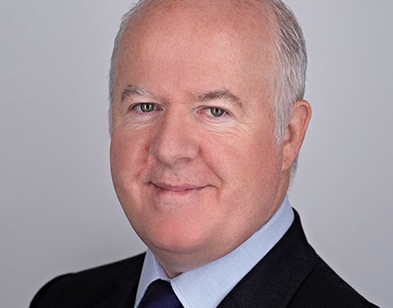I’m prompted to ask the question posed in the headline after reading several recent surveys suggesting that, given a choice, most people do their very best to avoid taking financial advice.
A recent survey found that at an astonishing 24.6m people in the UK have never taken any financial advice or guidance.
It backs up other recent surveys which suggest that very few people take any kind of financial guidance before making a potentially critical financial decision.
Perhaps only 10% get professional advice, an appallingly low figure. I'll leave it to you to decide if there is a connection between these stats and the number of scams, cons and poor investment decisions people find themselves caught up in.
With figures like those above I wonder if many millions of UK consumers really do have an advice allergy, convincing themselves that they know best (when most clearly do not).
The survey by wealth manager St James’s Place, which found nearly 25m people avoid financial advice, also revealed that 11m complain that ‘perceived barriers’ deter them from getting advice.
This is despite the fact that a lot of advice is free, whether it be from PensionWise, Citizens Advice Bureau or money charities. Advice needn’t cost a fortune. Even most Financial Planners will offer a half hour of initial pro bono advice.
Most consumers, I suspect, make little real effort to seek professional financial advice, preferring to rely on unreliable friends and family, perceiving it to be cheaper, or free or failing to understand the risks they take by doing so.
One of the interesting factors uncovered by SJP, which surveyed nearly 12,000 people, was the view that advice is “not for people like me.”
I’m not quite sure what this mean but my interpretation is that many believe advice may only for the well off or people with plenty to invest. This isn’t true either.
To be fair, getting highly experienced, holistic Financial Planning is not cheap but equally it’s not absurdly expensive either, given the risks of getting things wrong.
It always surprises me that that someone with £500,000 or £1m in a pension pot will avoid spending £5,000 for advice which could prevent huge tax blunders and boost their retirement income.
The mission of the Financial Planning profession in coming years, I believe, should be to convince those ‘allergic’ to paying for professional advice that it is actually worth it and does pay off. Making it more affordable in some ways will help and it’s good to see some new, hybrid services trying to expand access, reducing the barriers if you like.
Given the above, however, it’s no wonder the number of advisers is pretty much stagnant. The sector has happily sat back and waited for the revenue and profits to roll in and indeed they have rolled in. Why change things when you can live comfortably on the business you already have? I understand that point of view.
I suspect there are other factors involved in people not seeking advice. ‘Where to start’ is often a first question I’m asked by friends and family. Apathy and inertia are also to blame. In addition, because of the dreadful dearth of financial education in schools and colleges we also have a population ignorant of the financial damage they can do to themselves by not managing their money properly or trying a solely DIY approach.
The Financial Planning profession and the professional bodies do their bit but it needs to be much more. It needs government action to reverse the long-term antipathy to taking financial advice.
Good money management skill should begin in schools and support should continue into adult life. Educating people about the value of financial advice would be a good way to improve understand and usage.
Government agencies such as the HMRC, DWP and others can and should also do much more to expand financial education and awareness. Their communications are often awful and do little to explain the options available to consumers. Many millions rely on the UK's woeful State Pension but guidance from the DWP is often lacking or non existent.
On the more positive side, it was good to also see recently an industry initiative launched to promote the value of financial advice. Professional advisers' review site VouchedFor is teaming up with asset manager BlackRock and adviser investment platform Fundment to launch a 2025 Guide to Top Rated Financial Advisers. The aim is to reach more than 3m consumers by sharing positive client advice stories. This will not solve the problem but it is a start.
• Our latest issue of Financial Planning Today magazine has just been published. Here’s link to view the issue with my compliments: https://bit.ly/2ZdVXWz. If you have any questions or want to drop me a line to provide feedback you can reach me on
Kevin O’Donnell is editor of Financial Planning Today and a journalist with 40 years of experience in finance, business and mainstream news. This topical comment on the Financial Planning news appears most weeks, usually on Fridays but occasionally other days. Email:

